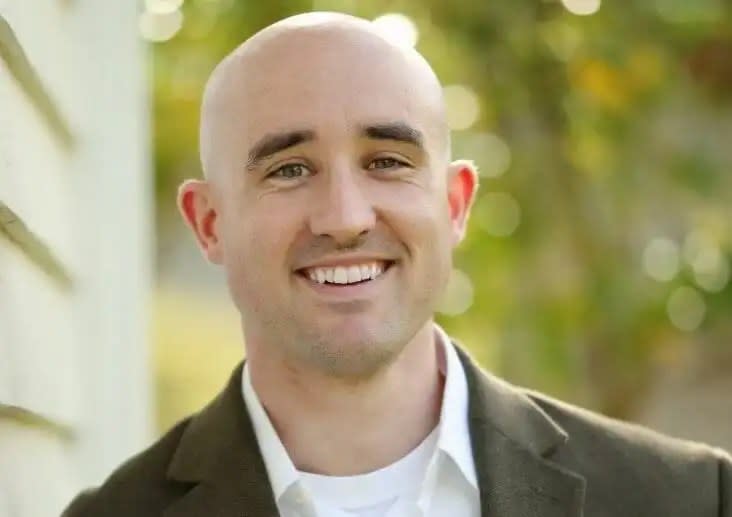Jan. 15—ROCHESTER — Potential legal implications of a
proposed camping ban on city property
will be reviewed by the Rochester City Council in a closed session Wednesday, Jan. 17.
“In order for legal counsel to provide candid advice and assess and discuss the risk of potential legal liability without jeopardizing the city’s defenses, that discussion requires absolute confidentiality,” Rochester City Attorney Michael Spindler-Krage wrote in a request for the session.
The city has obtained an outside lawyer through the League of Minnesota Cities to handle any related case that lands in court.
The council asked the city attorney in November to prepare an ordinance restricting camping in city parks and on other public property in Rochester. Two weeks later Spindler-Krage was notified of a potential lawsuit, if the ban is approved.
Brian Lipford, senior leadership attorney for Southern Minnesota Regional Legal Services, sent the city attorney a draft of the potential complaint, citing concerns about the proposed ordinance and the potential for jail time or a fine of up to $1,000 for anyone violating the camping ban.
“As Rochester’s current number of persons experiencing homelessness exceeds the number of available shelter beds, the obvious impact of this legislation would be to place persons experiencing homelessness within the city of Rochester at risk for prosecution for simply being homeless,” Lipford wrote to Spindler-Krage, indicating he is representing people who would likely be penalized under the proposed ordinance.
Spindler-Krage said the proposed ordinance isn’t intended to lead to criminal charges, unless a violator refuses to seek other shelter options. He said initial steps would include efforts to connect people with shelter or housing.
“This is our attempt to assure that enforcement is truly only directed as a last resort toward the people who do have other options but are instead choosing to be unsheltered (or in) situations that are unsafe or where conduct is extreme,” he said.
In addition to the threat of local litigation, the issue of camping bans is slated to be discussed at the federal level this year. The
U.S. Supreme Court announced Friday that it will hear a challenge to an Oregon case
regarding a city’s effort there to ban camping and penalize violators
The Grants Pass, Oregon, case is a challenge to a class-action lawsuit filed in 2018 by three people who claimed city laws punished them for being homeless. Their attorneys pointed to the lack of available housing and shelter in the city, as well as the broad nature of the restrictions, which led to a federal appellate court ruling in favor of their clients.
While the reach of the ruling is limited to the western states in the Ninth Circuit, Lipford has pointed out a U.S. Supreme Court ruling would have a broader impact and suggested the city’s discussion of a new ordinance is premature.
“I don’t think it is a good use of resources (on either side) to litigate a matter if we are going to be getting a decision from the high court that makes anything happening here moot,” he said Friday before the court made its decision.
Attorneys from the Oregon Law Center, which is asking the Supreme Court to uphold the earlier ruling, said the Grants Pass decision doesn’t bar cities from restricting camping in parks and other public spaces.
The appeals court “explicitly recognized the right of jurisdictions to clear encampments and to criminalize the use of tents on public property,” the attorneys wrote in their latest Supreme Court filing.
They state the issue with the Grants Pass camping ban went too far with a broad definition of camping and penalties for people who had no other option, since sleeping is a biological necessity and must be done outside when no other option is available.
Attorneys representing Grants Pass argue that the ruling creates a “constitutional right to camp on public property,” which limits the city’s ability to address related concerns.
Lipford, in his proposed complaint regarding the potential Rochester ban, echos the Oregon Law Center’s concerns, pointing to a broad definition of camping.
The draft Rochester ordinance reviewed in November
defines a campsite as “any place where any tent, lean-to, shack, or other structure, any vehicle or part thereof, or any bedding, sleeping bag, or other sleeping matter, or any stove or fire is placed, established, or maintained for the purpose of establishing or maintaining a temporary place to live.”
Lipford’s potential lawsuit points to three clients experiencing homelessness who could face negative impacts under the ordinance.
One has lived in Rochester since 2017 and has been homeless most of the time while struggling to find a home has been difficult due to physical and mental limitations; another is a lifelong Rochester resident who became homeless last year after being evicted; and a third moved to the area three years ago to care for his mother but lost his job and housing last year.
Lipford said all three worry a ban on camping could lead to convictions and fines that would limit their options for finding employment or housing.
The proposed lawsuit would ask a judge to bar the city ordinance without seeking financial damages, but Lipford said that could change if any of the participants were penalized under a future camping ban.
The City Council could consider action on the proposed camping ordinance as early as its Jan. 22 meeting, but Spindler-Krage said the issue is more likely to be considered during the council’s Feb. 5 meeting.
Signup bonus from



